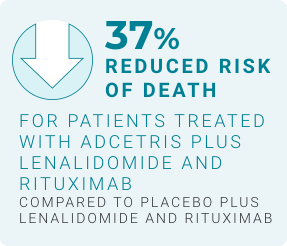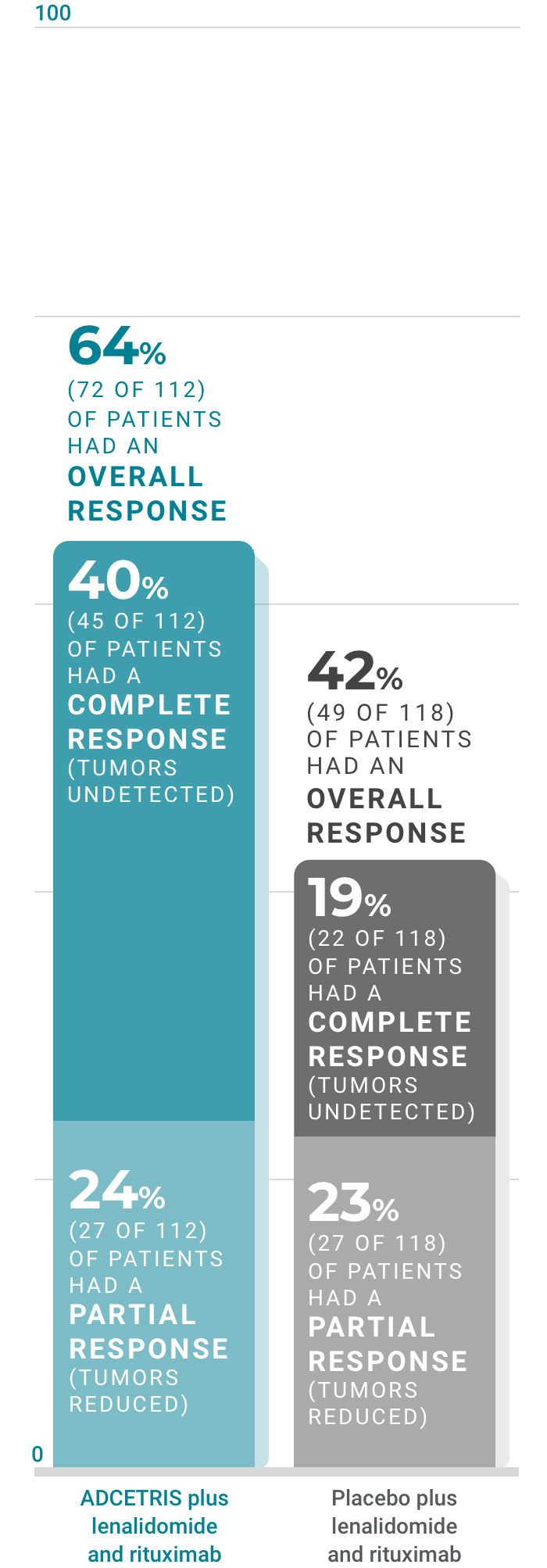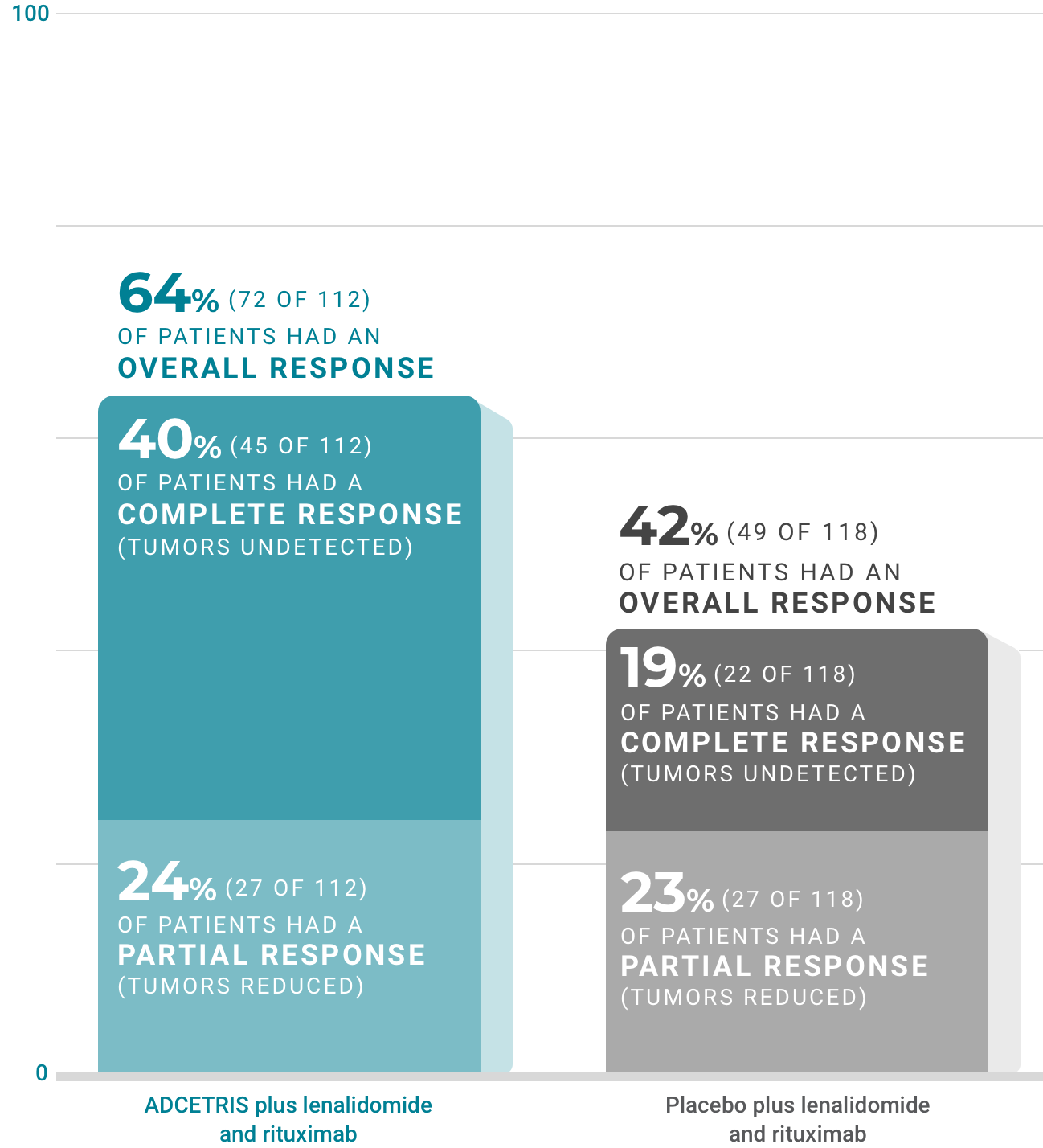ADCETRIS + LENALIDOMIDE + RITUXIMAB may advance your treamtent for another chance at tomorrow
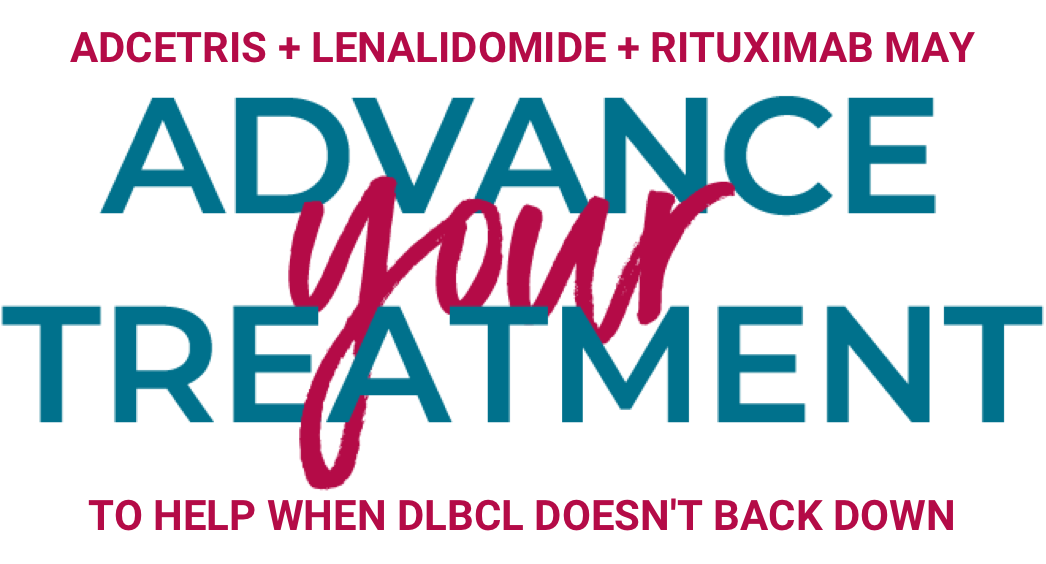
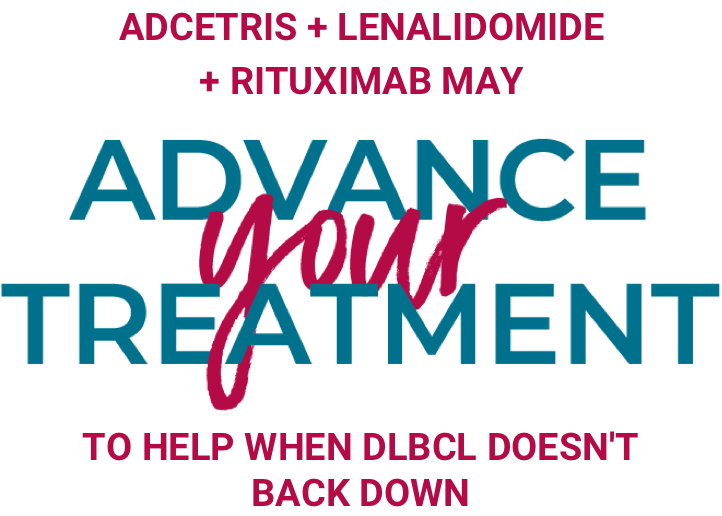
ADCETRIS, in combination with lenalidomide and rituximab, is approved to treat
adults with diffuse large B-cell lymphoma (DLBCL) that has come back (relapsed) or didn’t respond
(refractory) to 2 or more prior treatments and who are not candidates for
stem
cell transplant
(HSCT) or
CAR-T therapy.
Learn more about the ECHELON-3 study results and ask your doctor if ADCETRIS is an option for you.
See study results
How does ADCETRIS work?
Step 1
ADCETRIS aims to attach to cells that have a protein on their surface called CD30.
Step 2
Once attached, ADCETRIS is brought into the cell and released.
Step 3
The drug stops the cell from being able to grow and divide, causing the cell to die.
CD30 is not commonly found on healthy cells, ADCETRIS may still harm normal cells and cause side effects. Talk to your doctor if you have questions about how it works and about side effects.
Resources and support
From cost to resources, support may be available
The patient support programs available through Pfizer are designed to help patients begin their prescribed ADCETRIS treatment. If eligible and enrolled, you can receive personalized support, including:
- Confirming your insurance coverage
- Evaluating out-of-pocket costs and available copay options
- Helping you access alternative support options if you can’t afford ADCETRIS*
Talk to your healthcare provider to learn how to enroll in the Pfizer Patient Assistance Program.
Visit the websiteInformation provided by patient support programs from Pfizer is not intended to be a substitute for your healthcare provider. Discuss any questions you may have about your disease and your treatment with your healthcare team.
*Financial support may be provided through foundation referral. Pfizer does not guarantee that enrollment will result in coverage and/or reimbursement.
Apps to manage your care
Focus on Lymphoma
This app from the Lymphoma Research Foundation offers:
- Tailored content for your type of cancer
- A way to track your medications, blood counts, and doctor discussions
- Educational resources, stories of hope, and diagnosis and treatment information
- Resources, financial assistance, counseling, and help finding a doctor
- Ways to connect with others
LLS Health Manager
This app from the Leukemia and Lymphoma Society features:
- Side effect, medication, food, and hydration trackers
- Questions for your doctor
- Meal-planning tools
- Shared caregiver access
- Education, support, and resources
Helpful links
Connect with other people living with cancer and their caregivers
The organizations listed are independent from, and not sponsored by, Pfizer. This information is provided as a resource for patients and caregivers and is not an endorsement or guarantee of assistance. The information/links are not meant to replace a physician’s medical advice. Pfizer is not responsible for the content or services of these providers.

The Leukemia & Lymphoma Society funds lifesaving blood cancer research around the world, provides free information and support services, and acts as a voice for all blood cancer patients striving to achieve their mission to cure blood cancer and improve the quality of life of all patients and their families.

Devoted to improving care through patient education and support services and improving outcomes through investment in the most promising lymphoma research.

May provide resource navigation, counseling, support groups, education, publications, and financial and co-payment assistance to certain patients.

Provides professionally led support and navigation services, along with social connections and award-winning education available at 196 Cancer Support Community, Gilda’s Club, and healthcare partner locations as well as online and over the phone.

Supports people with cancer who are trying to manage their career with expert advice, interactive tools, and educational events.

Provides transplant patients, survivors, and their loved ones with emotional support and information about CAR T-cell therapy, peripheral blood stem cell, stem cell, and cord blood transplants.

